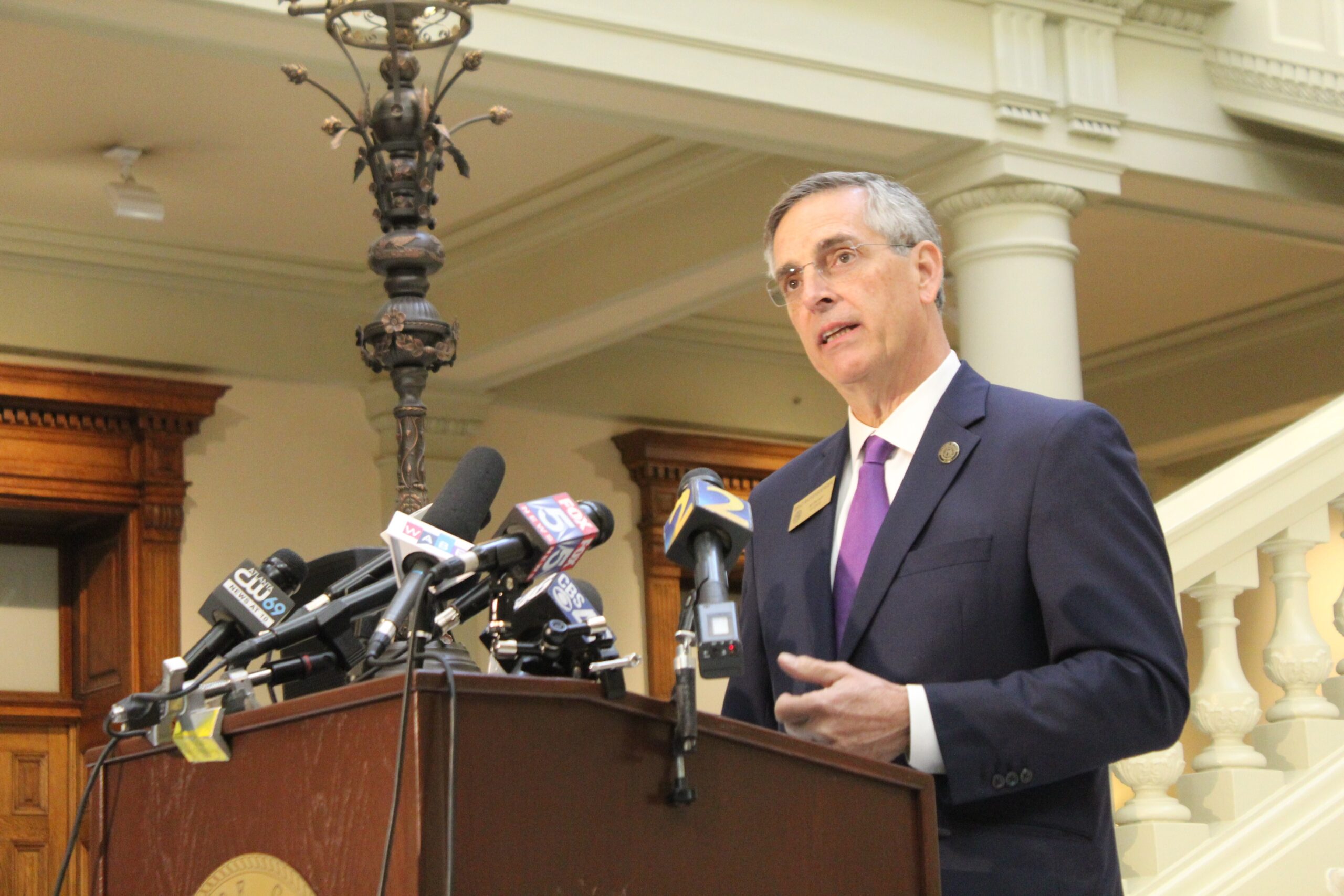Eyes On Georgia As Absentee Ballot Count Continues

At a press conference Wednesday at the state Capitol, Georgia Secretary of State Brad Raffensperger spoke about counting all the ballots, despite legal threats from President Donald Trump early Wednesday morning, calling for states across the country to stop counting ballots.
Emil Moffatt / WABE
Updated Wednesday at 3:12 p.m.
Georgia Secretary of State Brad Raffensperger says counties should be able to finish counting around 200,000 remaining absentee ballots by Wednesday.
That number includes 74,000 in Fulton County, whose processing was delayed because of a water pipe burst on Tuesday.
There are also more than 50,000 left to count in DeKalb County.
Georgians cast nearly 1.2 million absentee ballots for the November election. In a press conference at the state Capitol, Raffensperger spoke about counting them all, despite legal threats from President Donald Trump early Wednesday morning, calling for states across the country to stop counting ballots.
“The law is very clear. We follow the state law, and we don’t believe judges should legislate,” said Raffensperger.
Raffensperger says he is pleased with how quickly Georgia has counted the record number of absentee ballots. He credits an emergency rule in Georgia allowing counties to begin processing the ballots two weeks before Election Day.
“If you look at some of these states, this morning is when they actually opened up their absentee ballot boxes and that’s when they started actually the process of separating out the absentee ballots,” said Raffensperger. “That’s a very extensive process, verifying the signature and going through there and separating it out.”
As the vote counting continued Wednesday, people across the nation watched to see whether Georgia would finally become the swing state that Democrats have long hoped for.
The Associated Press has not declared a winner in Georgia’s presidential contest because the race between Trump and Democratic nominee Joe Biden is too early to call. But with many of the votes left to tally in counties that tend to vote blue, Democrats had reason for optimism.
No Democratic presidential candidate has won Georgia since Bill Clinton was first elected in 1992, and it’s been 22 years since a Democratic nominee for governor or U.S. Senate carried the state. But some cracks in the GOP grip on power were evident two years ago when Democrat Stacey Abrams narrowly lost the gubernatorial contest to Republican Brian Kemp but refused to concede.
Shifting demographics — with more Black, Latino and Asian American voters joined by white transplants from other states — have made the state more competitive. The populous suburbs in Cobb and Gwinnett counties just north of Atlanta had already flipped for Hillary Clinton in 2016 and stayed there for Abrams in 2018.
Trump and Biden are locked in a tight contest to secure the 270 electoral votes needed to win the presidency. Georgia offers 16 electoral votes.
The Associated Press contributed to this report.
*Correction: An earlier version of this story incorrectly stated that Georgians cast nearly 1.5 million absentee ballots for the November election. Georgians actually cast nearly 1.2 million absentee ballots for the November election.








